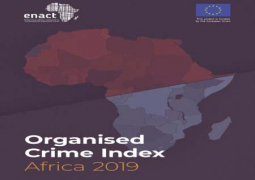The Department of Fisheries and Water
Resources in collaboration with Food and Agriculture Organisation (FAO)
Thursday convened a daylong inception seminar on a Technical Cooperation
Programme (TCP), at the Kairaba Beach Hotel.
The project funded by FAO to the tune of US
442,000 under a Technical Cooperation Programme to enhance the capacity of
youths and women for employment in aquaculture.
It would be implemented by the Department
of Fisheries within a period of two years.
Speaking at the seminar, the deputy
director of Fisheries, Anna Mbenga Cham, said fisheries and aquaculture sectors
have become a major priority area for development in the country.
She stated that there had been grave
concerns over the declining performance of this important sector, in terms of
its contribution to socio-economic development of the country.
The specific objective of the project
includes training Gambian youths and women in aquaculture with technical
know-how, and to promote the eradication of poverty through employment
creation.
It
is also meant to address and complement the government’s efforts in curbing
illegal migration of Gambian youths to Europe, commonly known as “back way”.
In her opening remarks, the deputy
permanent secretary at the Ministry of Fisheries, Fatoumata Sosseh-Jallow, said
the importance of the fisheries sector to the socio-economic development of the
country could not be overemphasized.
The government of The Gambia is fully
committed to the development of this sector to its fullest capacity, she added.
The main objective of the project is to
establish a solid base for the provision of and an access to good quality
fingerlings and feed, as well as technical and technological know-how,
managerial and other skills to farmers and fisheries officers, in order to turn
aquaculture into an economically viable, financially self-sustaining and
employment generating sustainable enterprise.
The provision of hatcheries and feed mill
plants in the country by the FAO is highly commendable, since it is very significant
for the development of the aquaculture sub-sector in The Gambia, she continued.
This was in line with the fisheries policy
objectives and sustainable development goals, she went on.
In this respect, she added, the Gambia
government is fully appreciative of the meaningful financial, technical and
materials support FAO is continually providing, not only to the fisheries
sector, but also to all food producing sectors of the country.
The deputy FAO representative, Mariatou
Faal-Njie, said The Gambia continues to face challenges to food security,
including low productivity, high costs, and a lack of modern techniques and
technology.
According to her, to overcome these
challenges, food security has over the years stood out as the top government
development priority.
She further stated that FAO support under
the TCP project would provide technical training, strengthening the capacity of
farmers on aquaculture production systems and other assistance, with particular
emphasis on poverty reduction, by allowing them to establish an aquaculture
system that generates adequate profits.
The project would contribute to FAO’s Blue
Growth Initiative, the main goal of which is to improve fish supply for food
and nutrition through more efficient and sustainable use of aquaculture
resources, she added.



